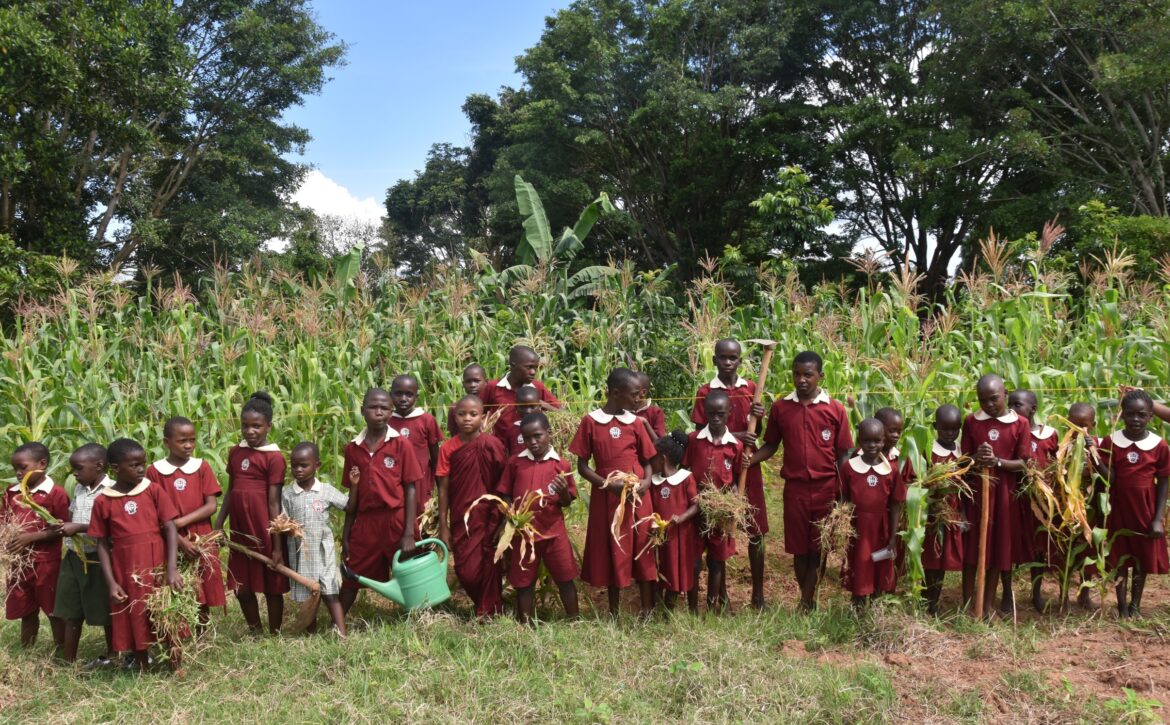From Kampala to the Blockchain: Enereum Partners with Uganda Buddhist Centre to Advance SDG Projects in Africa
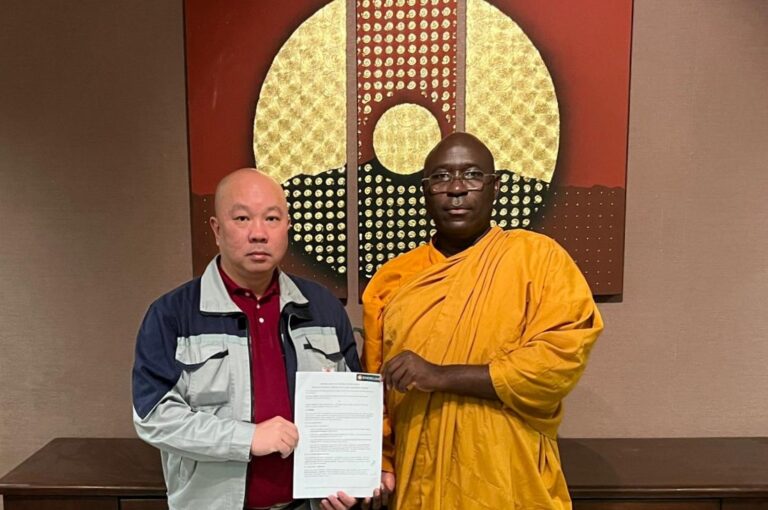
BANGKOK / ENTEBBE — July 7, 2025 — In a powerful step toward global decentralized cooperation, Enereum has officially signed a Memorandum of Understanding (MOU) with the Uganda Buddhist Centre (UBC), bringing the platform’s SDG-powered ecosystem to East Africa. The MOU was signed on July 6, 2025, in Bangkok by Venerable Dr. Kaboggoza Buddharakkhita, the founder and abbot of UBC, and Adisorn Vutthiverapong, CEO of Enereum Limited.
This partnership signals a profound new phase in Enereum’s evolution: one that embraces Africa’s grassroots innovation, faith-based compassion, and community-led sustainability, underpinned by cutting-edge Web3 infrastructure.
Uganda: A Country of Hope and Hidden Strength
Uganda, often called the “Pearl of Africa,” is a country blessed with natural beauty, fertile land, and youthful energy. Yet its communities face complex challenges: deforestation, limited access to energy, poverty, and lack of access to clean water, quality education, and healthcare — especially in rural areas. Communicable diseases like malaria and HIV/AIDS remain major public health burdens, while access to affordable medicine and consistent care is limited in many districts.
Within this landscape stands the Uganda Buddhist Centre (UBC), quietly serving as the country’s only Buddhist monastery. Located in Bulega, Garuga, near Entebbe, UBC is more than a place of worship — it has become a sanctuary of learning, peace, and community support, offering spiritual guidance alongside tangible development services.
Founded by Venerable Dr. Kaboggoza Buddharakkhita, a 58-year-old native of Uganda and a U.S. citizen with over 20 years of ordination, UBC operates with just two monks and around 50 novices — yet its impact extends far beyond its humble numbers. The Centre runs community outreach programs in food, education, and women’s empowerment, and is now preparing to establish a modest medical center to address malaria, HIV, and general medical needs in the surrounding area.
These health-focused efforts are part of UBC’s evolving vision: to combine spiritual wellness with physical care, helping uplift not only minds and hearts, but also the bodies and lives of Uganda’s most vulnerable.
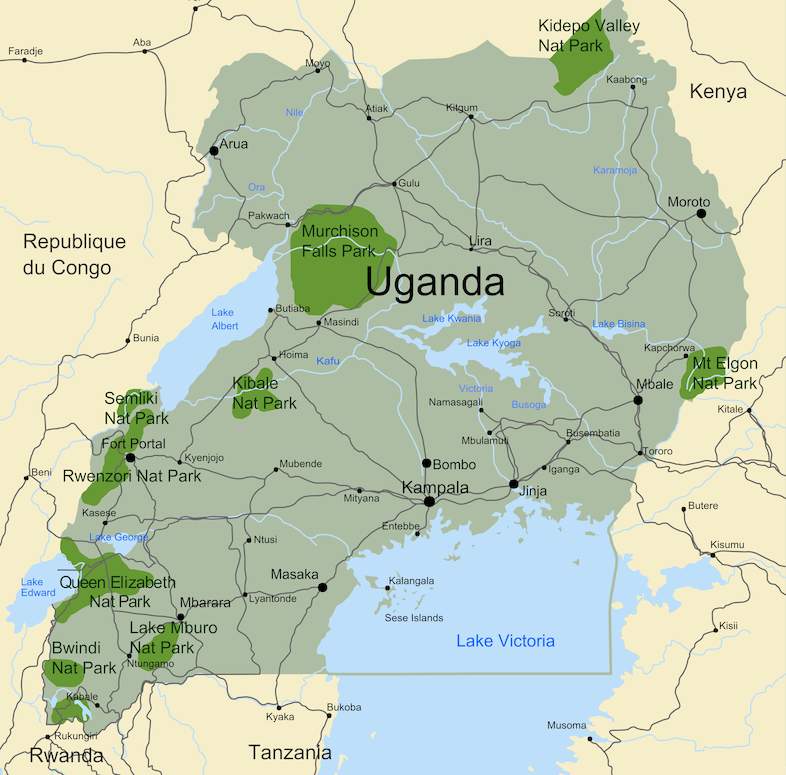
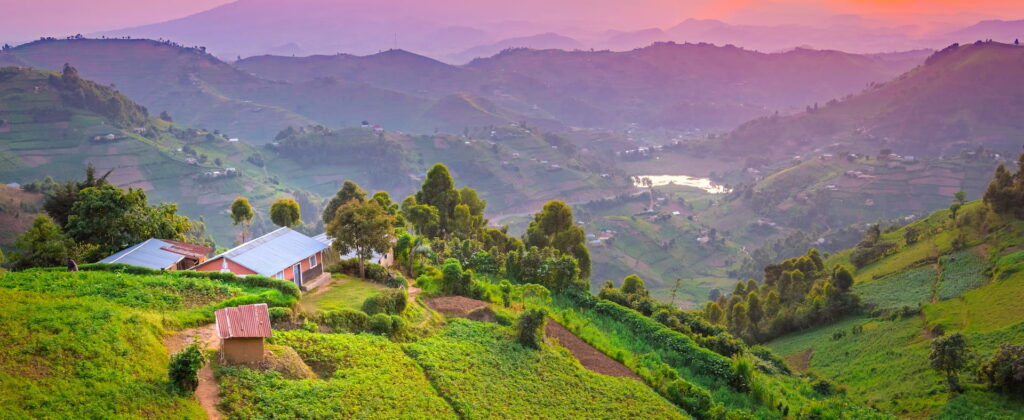

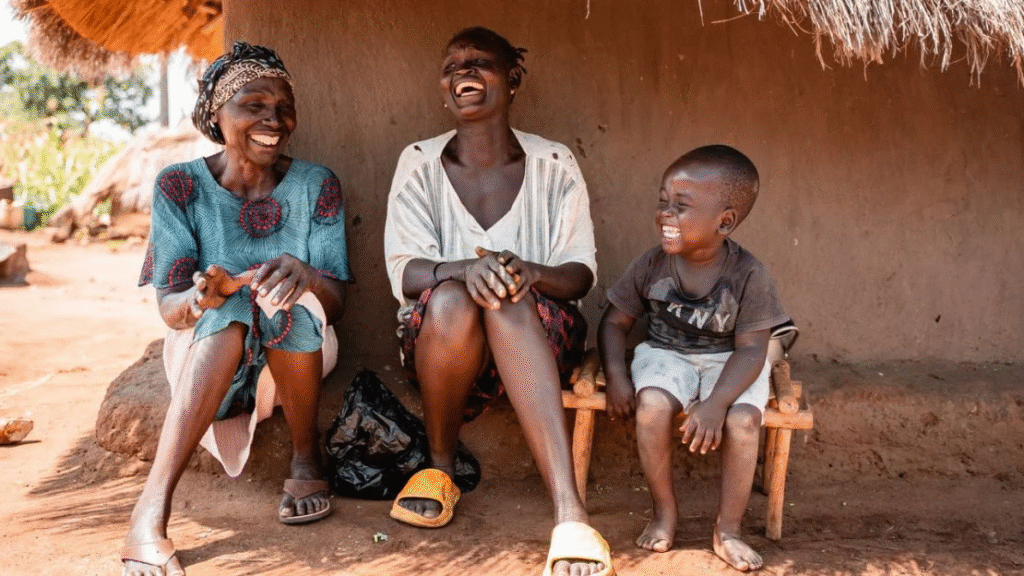
A Temple Built on Service, Simplicity — and Healing
While many religious centers focus solely on spiritual development, the Uganda Buddhist Centre (UBC) has evolved into a dynamic hub of social entrepreneurship and humanitarian care. Guided by the Buddhist values of compassion, right livelihood, and mindful action, UBC serves not only as a temple but also as a community engine for healing, nourishment, and empowerment.
At the heart of this mission are six ongoing grassroots initiatives:
1. Briquette Making
To combat deforestation and household air pollution, UBC produces eco-friendly briquettes as a sustainable cooking fuel. The project provides income while promoting clean energy alternatives.
2. Peace Detergent (Liquid Soap)
UBC trains students and staff to produce and sell liquid soap, promoting hygiene and creating economic value for the temple and surrounding community.
3. Peace Chalk
Low-cost, durable chalk is made on-site to support schools while offering students hands-on entrepreneurial training.
4. UBC Bakery
The temple’s bakery now supplies fresh bread, cakes, and snacks weekly to over 80 students and staff — reducing food costs and building vocational skills.
5. Organic Farming
Vegetables, herbs, and fruit grown around the temple feed the monastic community and provide agricultural education to youth.
6. Women & Youth Empowerment
UBC trains women in tailoring, reusable sanitary pad making, and other crafts — helping them achieve economic independence and stability for their families.
7. Health and Medical Outreach
In response to urgent local health needs, UBC is now laying the groundwork for a community-based center of health, with plans to offer preventive education, malaria and HIV awareness, and basic general medicine. The initiative reflects the Centre’s growing role as not only a spiritual refuge but a source of practical healing and resilience in a region still struggling with treatable diseases and medical poverty.
Together, these initiatives form a living ecosystem of care, powered by simplicity, service, and a deep-rooted commitment to the well-being of all beings — both spiritually and physically.

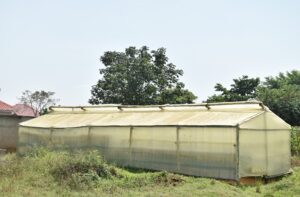
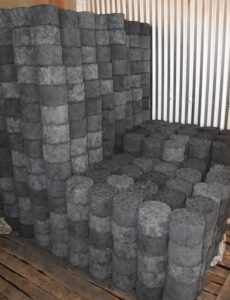
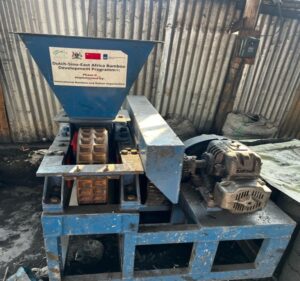
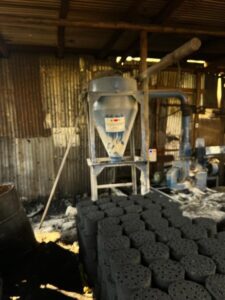


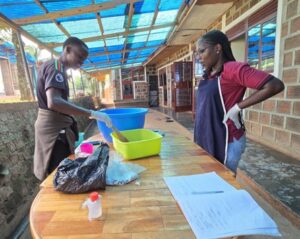
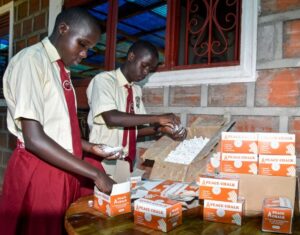
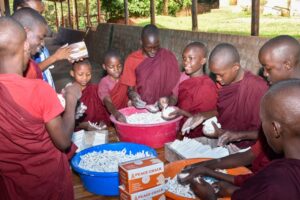
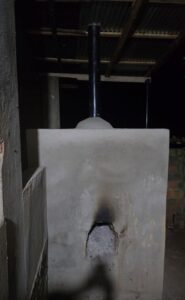


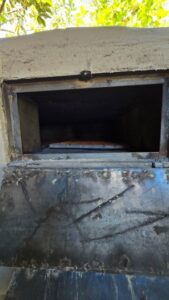
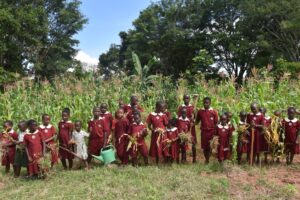
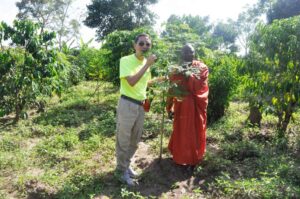
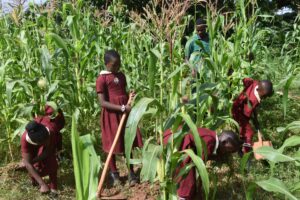
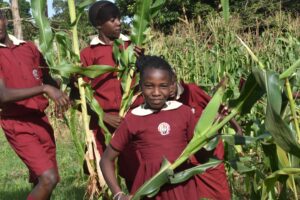
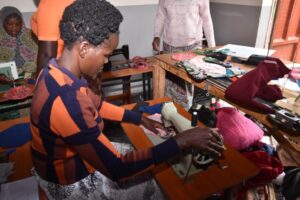
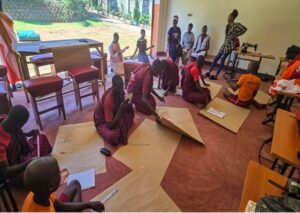
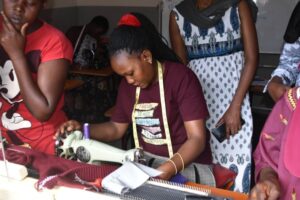
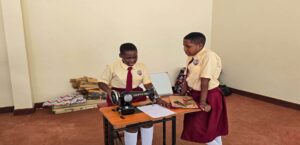
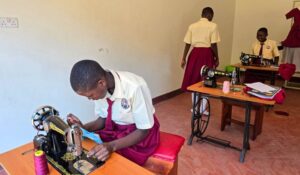
How Enereum Supports This Vision
The Enereum platform is purpose-built to drive real-world sustainable impact by combining advanced blockchain systems with transparent community action. Unlike traditional donation models — often limited by opacity and inefficiency — Enereum ensures that every initiative is verifiable, traceable, and aligned with the UN Sustainable Development Goals (SDGs).
How It Works:
- Projects like UBC’s bakery, chalk-making, farming, or medical outreach can be listed on the Enereum platform
- Each project is converted into a Project NFT — a unique digital asset that represents the verified real-world initiative
- Supporters worldwide can fund these projects by purchasing the NFT or contributing using Enereum tokens (ENR)
- Funds are released to the project operator through smart contracts, governed by MRV standards —
Monitoring, Reporting, and Verification — ensuring the impact is measurable, accountable, and public - Enereum applies a 3% listing fee, supporting long-term platform sustainability while keeping access open for grassroots operators
This entire model is powered by a hybrid architecture that integrates:
Core Components:
- DePIN (Decentralized Physical Infrastructure Network)
Connecting blockchain financing with real-world infrastructure, allowing communities like UBC to receive global support while delivering verified local outcomes. - DePDD (Decentralized Project Design Document)
Every listed project must submit a transparent on-chain PDD — including goals, budgets, metrics, and timelines — visible to all supporters and reviewers. - MRV Framework
Projects are continuously monitored and must report progress, outcomes, and impact using public-facing tools, ensuring ongoing verification and community trust.
Enereum is not a donation site — it’s a living, participatory ecosystem where verified local action meets decentralized global funding. Supporters don’t simply give; they become part of the mission — with transparency, shared purpose, and digital accountability baked into every project.

Token Economy and Current Opportunity
The platform’s utility token, Enereum, is currently in private sale at $0.12 USD, with a target public ICO price of $0.16 USD. Early buyers are not only investing in a promising DePIN economy — they’re helping seed a new form of impact capitalism that benefits people like UBC’s students and community women.
With hundreds of millions of dollars flowing into speculative NFT and token markets, Enereum presents a refreshingly grounded alternative: one where digital assets fund solar panels, education, reforestation, or health programs, not cartoon apes or meme coins.
Signing Ceremony: A Moment of Unity
On July 6, 2025, a photo was taken in Bangkok marking the official signing of the MOU between Enereum CEO Adisorn Vutthiverapong and Venerable Dr. Kaboggoza Buddharakkhita. The image captures more than a partnership — it reflects a moment of unity across continents, faiths, and technologies.
What’s Next?
UBC will soon begin listing its first pilot projects on the Enereum platform — expected to include their briquette, bakery, and school hygiene initiatives.
Meanwhile, Enereum continues expanding its curated Operator Network across Asia, Africa, and Latin America. Any organization with verifiable, SDG-aligned projects and transparent operations may apply to join.
Final Thoughts
As Uganda Buddhist Centre joins the Enereum network, a quiet but powerful message begins to resonate: change doesn’t need to come from many — it can start with just a few, deeply committed individuals and a clear purpose.
This partnership is not just about technology or fundraising. It’s about building bridges — between continents, between worldviews, and between people who care enough to act.
From a modest temple in Entebbe to a decentralized platform spanning Asia, Africa, and beyond, the work ahead is both humble and ambitious. What connects it all is the shared belief that real change happens when local wisdom and global tools come together — not to replace each other, but to uplift one another.
The journey with Uganda has just begun — but the path is clear, and the intention is strong.


